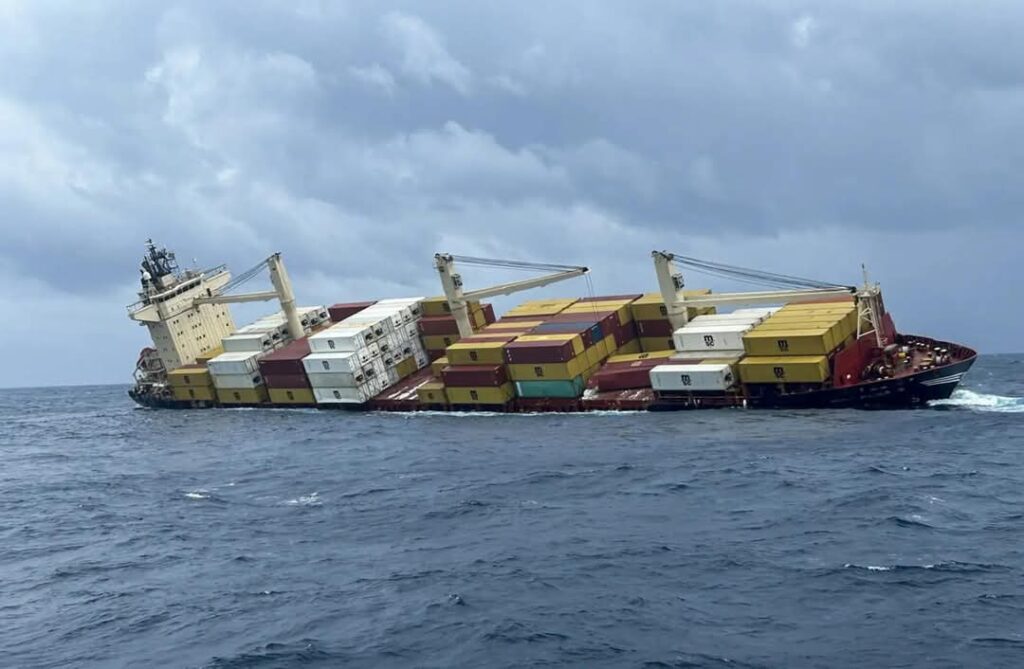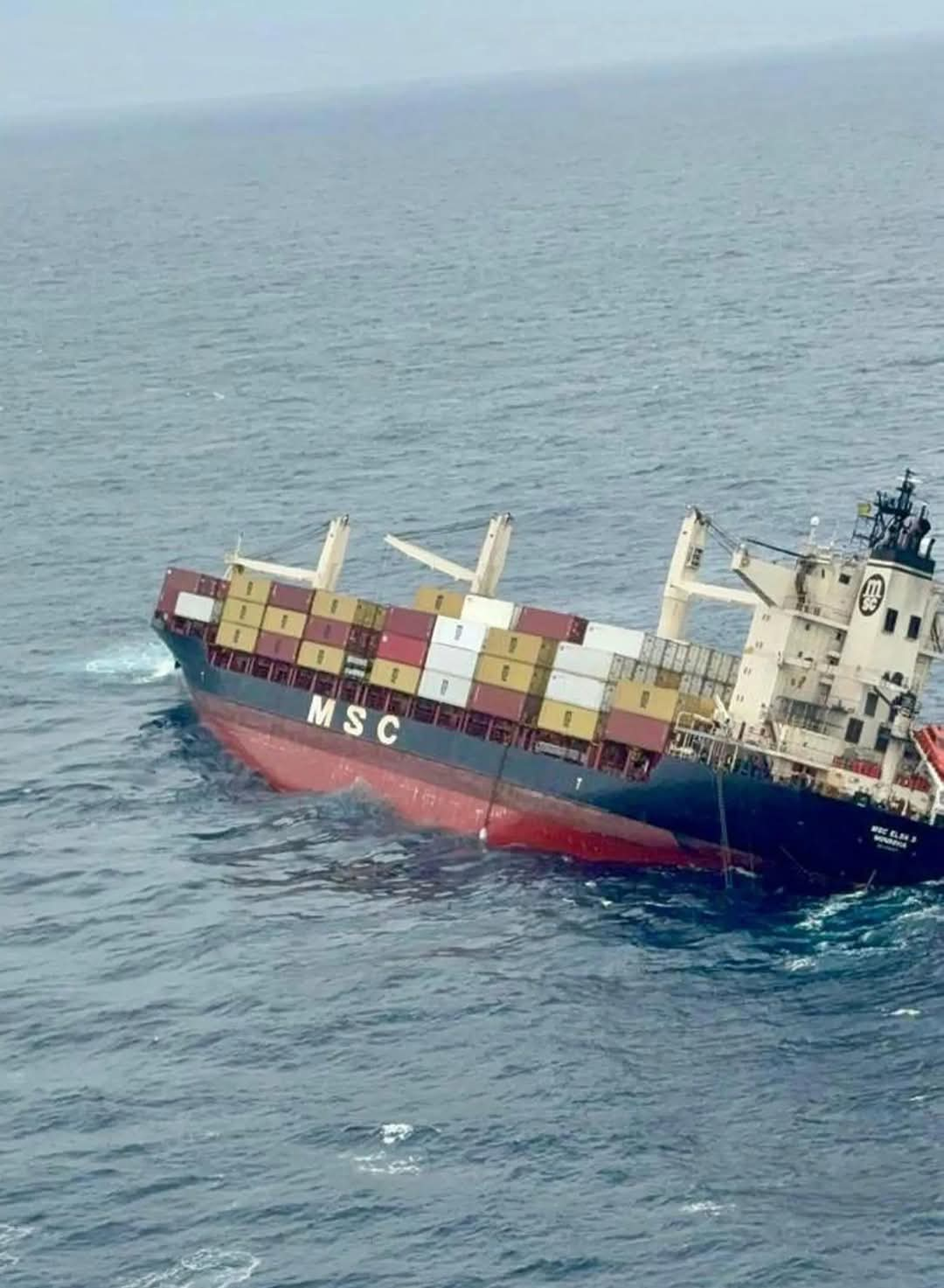On May 24, 2025, a catastrophic oil spill off the Kerala coast, triggered by the sinking of the Liberian-flagged cargo ship MSC ELSA 3, has raised alarm over its potential to devastate the region’s marine ecosystem. Located 38 nautical miles from the Kochi coast in the Arabian Sea, the spill is spreading rapidly, threatening marine life, fisheries, and coastal communities. As authorities scramble to contain the crisis, the environmental and economic stakes are alarmingly high.
The MSC ELSA 3, en route from Vizhinjam to Kochi, sank with 640 containers on board, including 13 carrying hazardous cargo and 12 containing calcium carbide. The vessel also held 84.44 metric tonnes of diesel and 367.1 metric tonnes of furnace oil, fueling a spill that now spans 2×1 nautical miles. While all 24 crew members were safely rescued, the ship lies fully submerged, with rough seas exacerbating the spread of oil towards Alappuzha, Kollam, and Thiruvananthapuram. As of May 27, 2025, 30 containers have washed ashore, though authorities confirm these are not hazardous. However, the oil slick remains a critical threat, with warnings it could reach the coast imminently.

While the Indian Coast Guard has mobilized a robust response, deploying ships Vikram and Saksham to block the oil, while a Dornier aircraft sprays oil-dispersing powder. The pollution control vessel Samudra Prahari is en route from Mumbai to bolster efforts. Rapid response teams from the Coast Guard and the State Pollution Control Board are stationed across Kerala’s coastal districts, monitoring the situation every two hours. Coastal communities have been placed on high alert, with fishermen advised to avoid the sea and Kollam residents urged to relocate to safer areas. Despite these measures, Authorities indicate the spill is worsening, driven by monsoon currents, with contamination spreading rapidly.
The oil spill poses a severe risk to Kerala’s marine ecosystem, a biodiversity hotspot in the Arabian Sea. Field studies by the Indian National Centre for Ocean Information Services (INCOIS) and the Indian Council of Agricultural Research – Central Marine Fisheries Research Institute (ICAR-CMFRI) are underway to assess the damage. Oil smothering, a process where oil coats marine organisms, threatens species critical to the region’s ecological balance. The spill could disrupt fish breeding grounds, reduce oxygen levels in water, and poison marine life, with long-term consequences for biodiversity.
The spill’s timing is particularly concerning, as it coincides with the onset of the monsoon, a period vital for marine productivity. Scientists warn that oil contamination could impair fish stocks, disrupt food chains, and reduce catches, drawing parallels to the 2017 Chennai oil spill, which caused significant ecological and economic damage.

Economic and Social Impacts:
Kerala’s coastal communities, heavily reliant on fishing, face dire economic consequences. The spill threatens the livelihoods of thousands of fishermen, with bans on fishing activities already in place. The 2017 Chennai spill serves as a stark reminder of the long-term economic toll, with affected regions reporting reduced fish yields and income losses for years. Coastal tourism, another economic pillar, could also suffer if oil reaches the shores, deterring visitors and harming local businesses.



